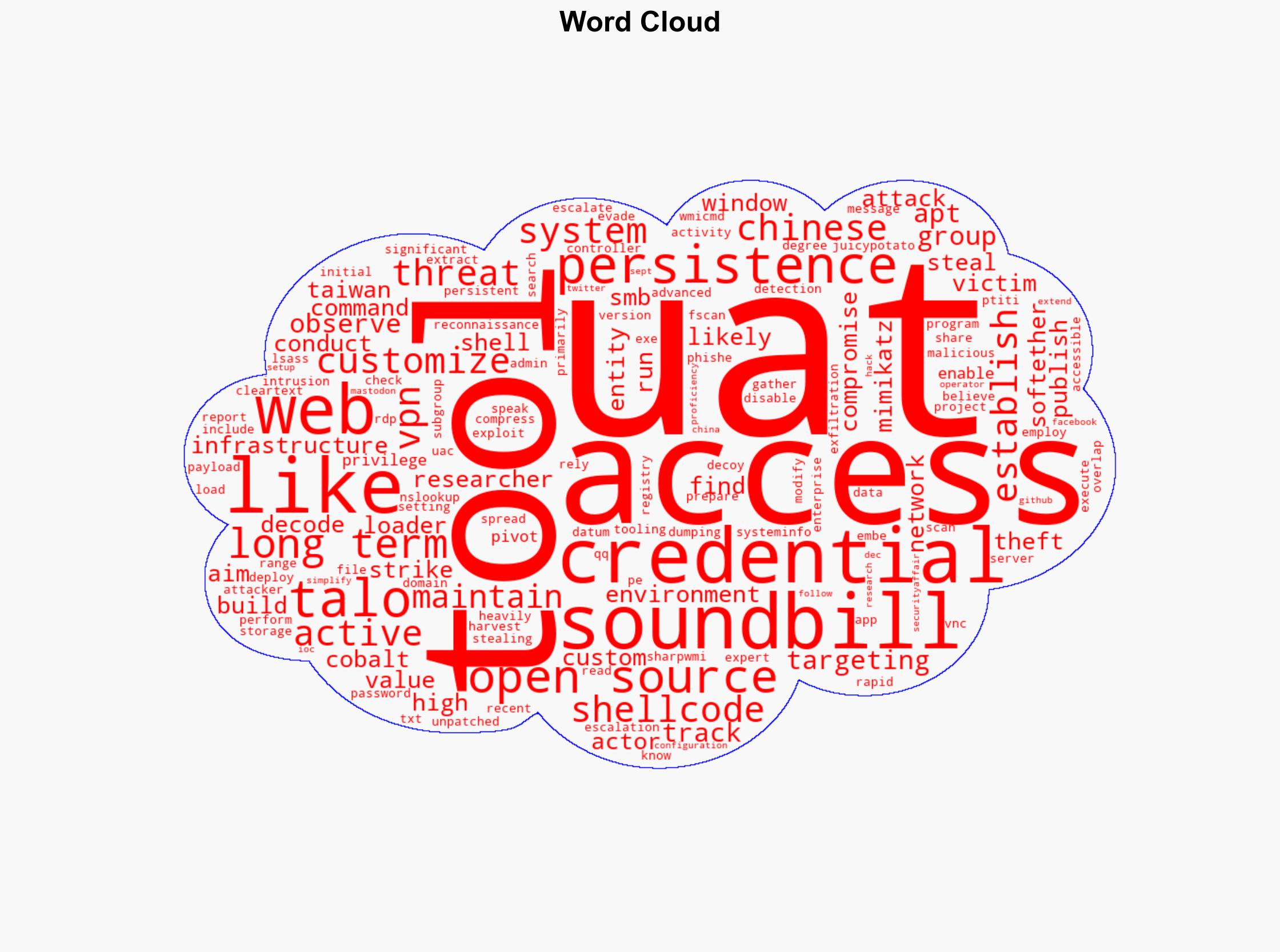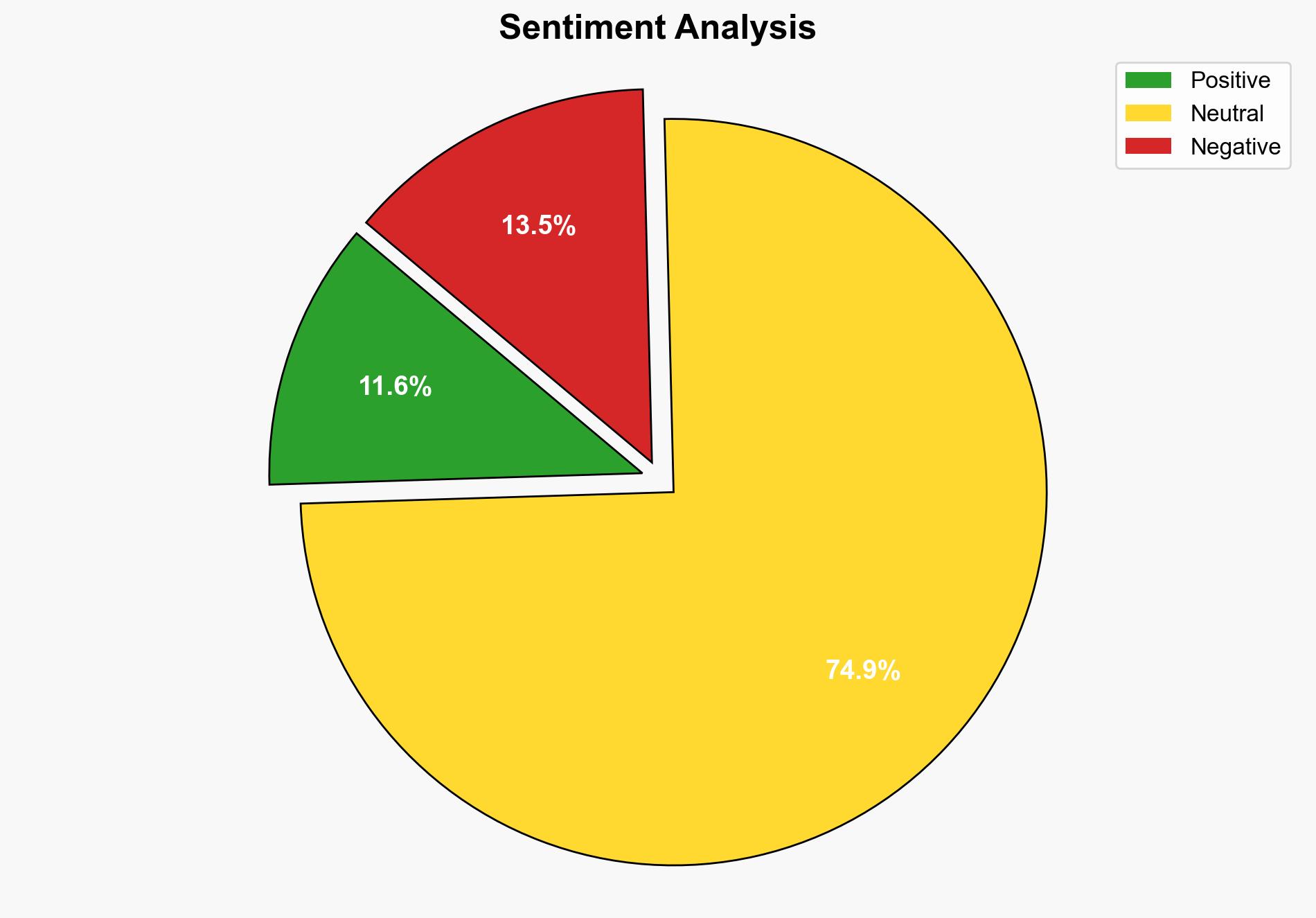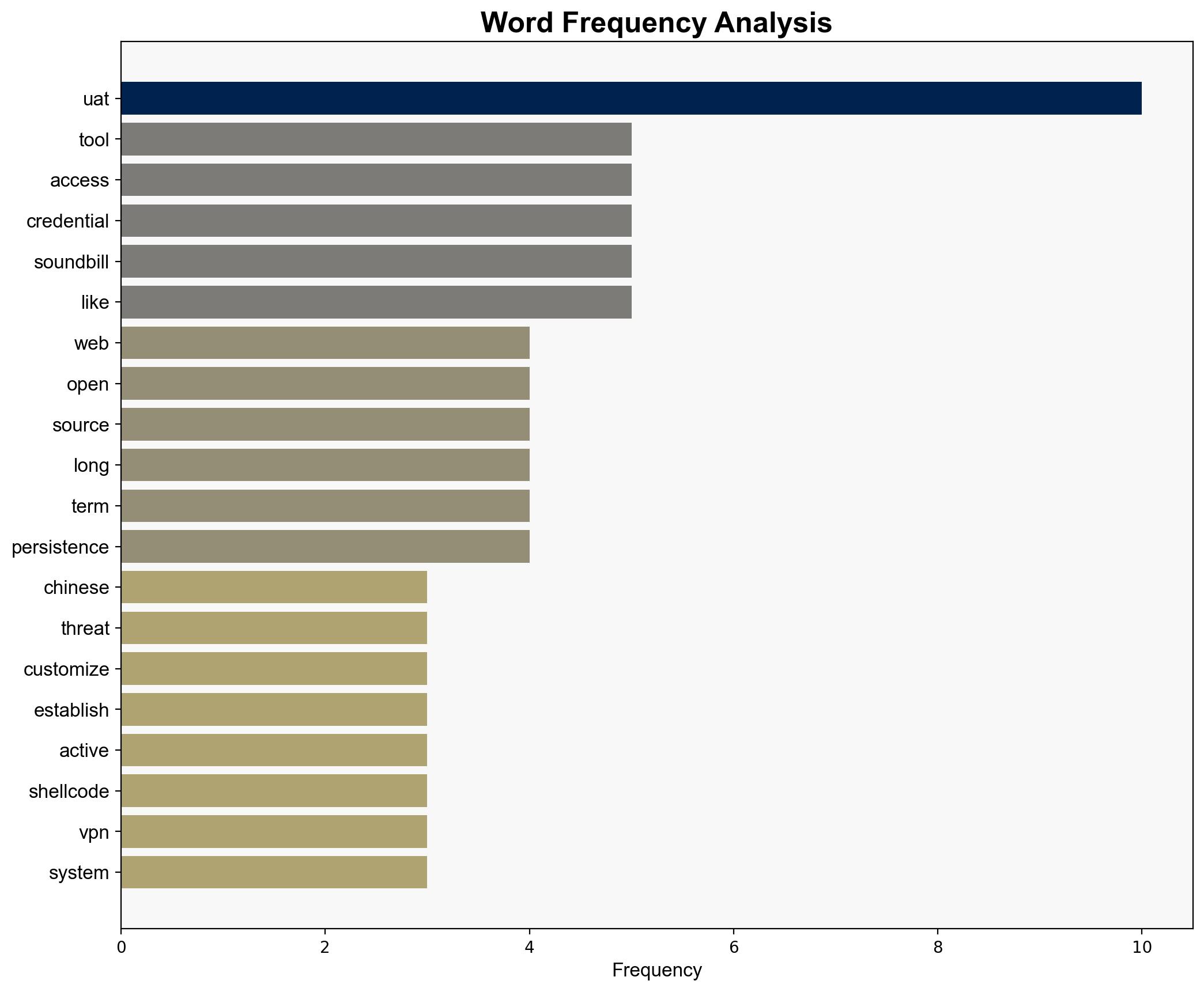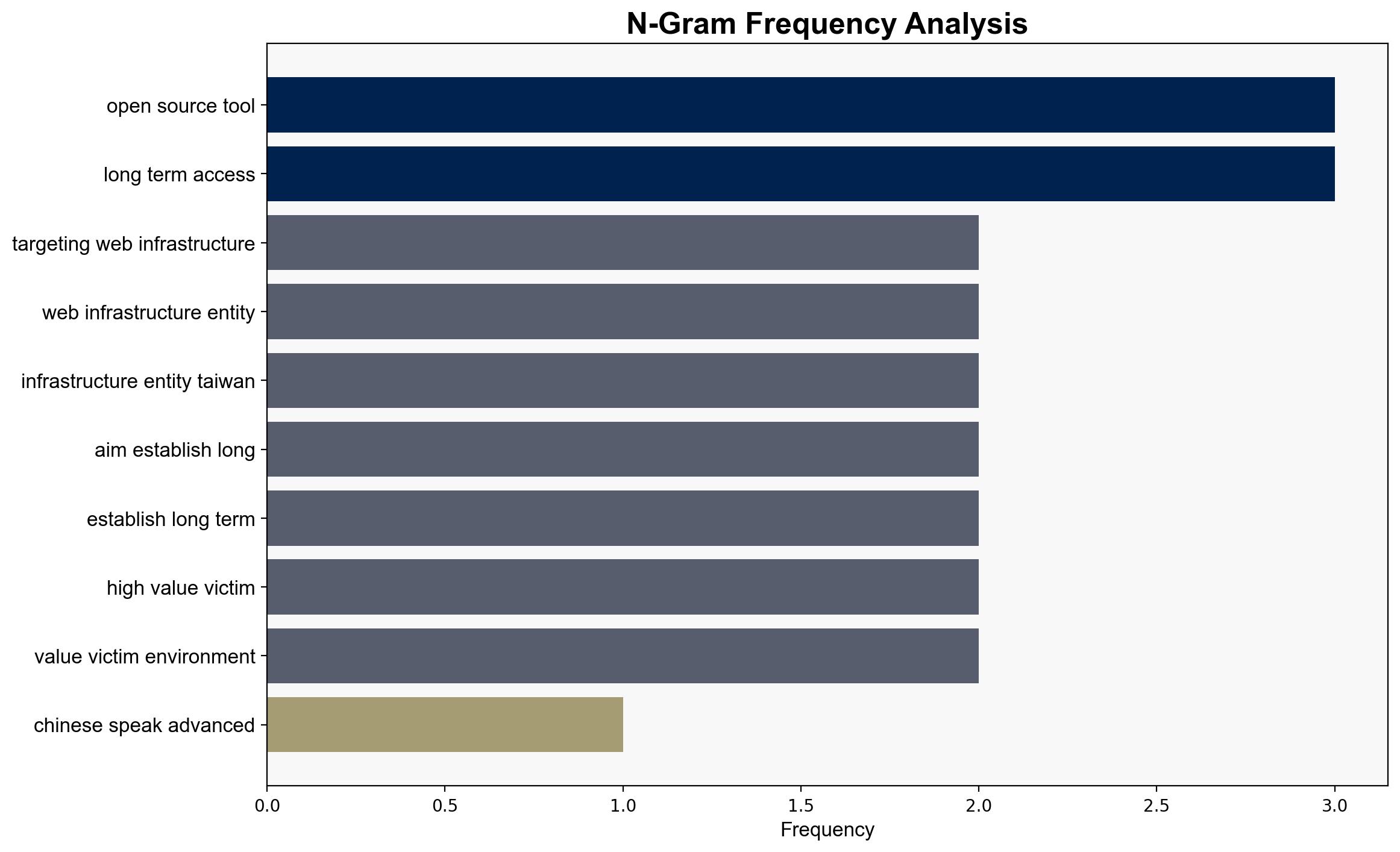Taiwan Web Infrastructure targeted by APT UAT-7237 with custom toolset – Securityaffairs.com
Published on: 2025-08-16
Intelligence Report: Taiwan Web Infrastructure targeted by APT UAT-7237 with custom toolset – Securityaffairs.com
1. BLUF (Bottom Line Up Front)
The APT group UAT-7237 is likely targeting Taiwan’s web infrastructure to establish long-term access and conduct espionage activities. The use of customized open-source tools suggests a strategic aim to evade detection. The most supported hypothesis is that UAT-7237 is a subgroup of a larger Chinese state-sponsored entity. Confidence level: Moderate. Recommended action: Enhance cybersecurity measures and international collaboration for threat intelligence sharing.
2. Competing Hypotheses
Hypothesis 1: UAT-7237 is a Chinese state-sponsored group targeting Taiwan to gather intelligence and maintain long-term access to critical infrastructure. This hypothesis is supported by the use of customized open-source tools, overlap with known Chinese tactics, and the strategic value of Taiwanese targets.
Hypothesis 2: UAT-7237 is an independent cybercriminal group motivated by financial gain, using Taiwan as a testing ground for their tools and techniques. This hypothesis considers the potential for financial motivations and the use of decoy tactics like the QQ messaging app.
3. Key Assumptions and Red Flags
Assumptions:
– Hypothesis 1 assumes state sponsorship due to tool sophistication and target selection.
– Hypothesis 2 assumes financial motivation based on the use of phishing and decoy tactics.
Red Flags:
– Lack of direct attribution to a specific Chinese entity.
– Potential bias in assuming state sponsorship without conclusive evidence.
– Incomplete data on the full scope of UAT-7237’s operations and affiliations.
4. Implications and Strategic Risks
The targeting of Taiwan’s web infrastructure by UAT-7237 could lead to significant geopolitical tensions, especially if linked to Chinese state actors. Escalation risks include retaliatory cyber operations and increased regional instability. Economically, compromised infrastructure could disrupt Taiwanese industries and impact global supply chains. Psychologically, persistent threats may erode public trust in digital security.
5. Recommendations and Outlook
- Enhance cybersecurity protocols and conduct regular audits of web infrastructure.
- Strengthen international cooperation for intelligence sharing and joint cyber defense initiatives.
- Scenario-based projections:
- Best Case: Successful mitigation of UAT-7237’s activities through enhanced defenses and international collaboration.
- Worst Case: Escalation of cyberattacks leading to significant infrastructure damage and geopolitical conflict.
- Most Likely: Continued low-level cyber espionage with periodic disruptions.
6. Key Individuals and Entities
No specific individuals named in the intelligence. Entities involved include APT UAT-7237 and Talos researchers.
7. Thematic Tags
national security threats, cybersecurity, counter-terrorism, regional focus





